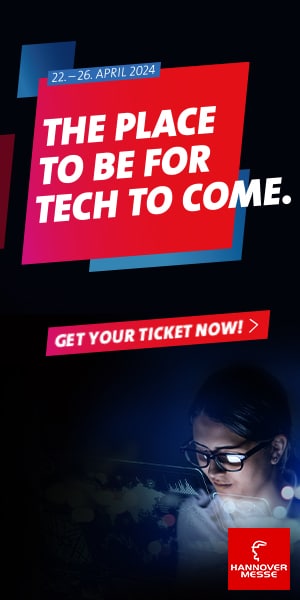Industry 5.0 is not currently a hot topic of conversation… and nor is the industrial revolution it proposes. Any focus it may have on technology is merely to enable it to transcend concepts of productivity and better co-exist with the new needs of society. The approach is certainly forward-looking, but certain subjects – such as industrial cybersecurity – are already highly topical.
By Vincent Nicaise, industrial partnership and ecosystem manager, Stormshield
Is It Too Early to Talk About 5.0?
Discussions about Industry 5.0, at a time when companies have been weakened by the health crisis and are now operating in an uncertain geopolitical environment, can at best be perplexing; at worst, tense. However, there has never been a better time to examine the ability of the European industrial fabric to evolve its methods to enable it to better resist environmental, societal, economic, and political upheaval.
On the ground, the concept is prompting a degree of head-scratching. Many industrialists have heard little about it; others smile patiently and point out that Goal 4.0 is already a challenge in itself, and that you have to learn to walk before you can consider sprinting.
The term Industry 5.0 may be something of a misnomer, as it suggests a sequential progression. The European Commission addresses the subject in its report, “Industry 5.0 – Towards a sustainable, human-centric and resilient European industry”, published earlier this year. The work is the result of broad consultation and aims to take the measure of the emerging societal challenges that will have a decisive impact on the industry of the future.
RELATED OP-ED
Industrial Revolution 5.0, or coexistence between paradigms and complementarity: the European objective is based mainly on raising consciousness, and seeks to draw industry out of the linear prism of a quest for production that has become unsustainable and unsuitable.
And because industry is the biggest contributor to the European economy, accounting for 20% of the EU’s GDP, the main issue is to react before it becomes a colossus with feet of clay that will fail to rise again in the event of another global crisis.
Jobs, Reindustrialization and Resource-saving
European industry is being required to refocus on people and become sustainable and resilient. There is a twofold desire; firstly, to avoid reproducing outdated productivist models, and secondly, to strive towards a reindustrialization that is struggling in Europe.
Industry 4.0 has added a highly competitive techno-economic vision to the roadmaps of industrialists, the transformative effects of which are already at work in all strata of civil society. The introduction and widespread use of technologies (sensors, data, artificial intelligence, automation) is profoundly changing work patterns, the role of humans, and the way in which resources are used.
The aim of Industry 5.0 is to assess the transformations introduced by innovation with the intention of mitigating its harmful effects; but more importantly, of renewing the role played by industry in society, as a provider of genuine social, environmental and societal prosperity.
RELATED ARTICLE
But we are not there yet. Despite being a major employer, the industry is suffering from a constantly increasing loss of interest in its professions. The widely-covered decision by the future engineers of Agro Paris Tech to “opt out” echoes a growing desire on the part of the new generations to do better, in the name of global ecology, and the statement of a need to find meaning in professional life. As recruitment agencies testify, high-school graduates are rejecting the professional futures in store for them, and are calling overwhelmingly for a rethink of all current production methods. Without the next generation of engineers, technicians and workers, European industry will not succeed in its transition to the only possible future – a future that is sustainable, local and durable.
A Need for a Framework of Physical and Cyber Trust
The European Union’s intention is to use cutting-edge technologies to make the Industry 5.0 paradigm a reality and to make its jobs desirable again. This in itself supports the idea that this “new normality” (in the words of the report) is intended to illuminate the path already taken in the light of new challenges, instead of renewing its foundations.
Individualized human-machine interaction; biomimicry and intelligent materials; digital twins and simulation; data transmission; storage and analysis technologies; artificial intelligence; technologies for energy efficiency and renewable energies… the aim is to combine renewed attractiveness with climatic and societal challenges.
And underpinning all these technologies is data. Data for making better decisions, understanding better, consuming resources better and more sparingly, and managing tomorrow in line with European conditions for sustainability and resilience while ensuring that people and their needs are fully considered. Enterprise 5.0 may only exist on paper at present, yet it is rooted in its 4.0 form, which already requires special attention to increased security… a consideration that is now more essential than ever if we are to build lasting trust.
Human-machine cooperation first requires strong safety technologies if it is to gain a foothold and ensure the safety of workers. Trust in robotics that assists and moves around employees would quickly evaporate in the face of computer attacks that were capable of altering the behavior of co-working machines. And the potential scenarios are endless: predictive maintenance, process quality, the solidity of the underlying network infrastructure, and the reliability of the data on which future decisions will be based… all these represent a challenge to be faced today.
Genuine IT security for robotic, automated, interconnected, and distributed enterprises improves their digital intelligence and the success of the societal model the EU is calling for.










